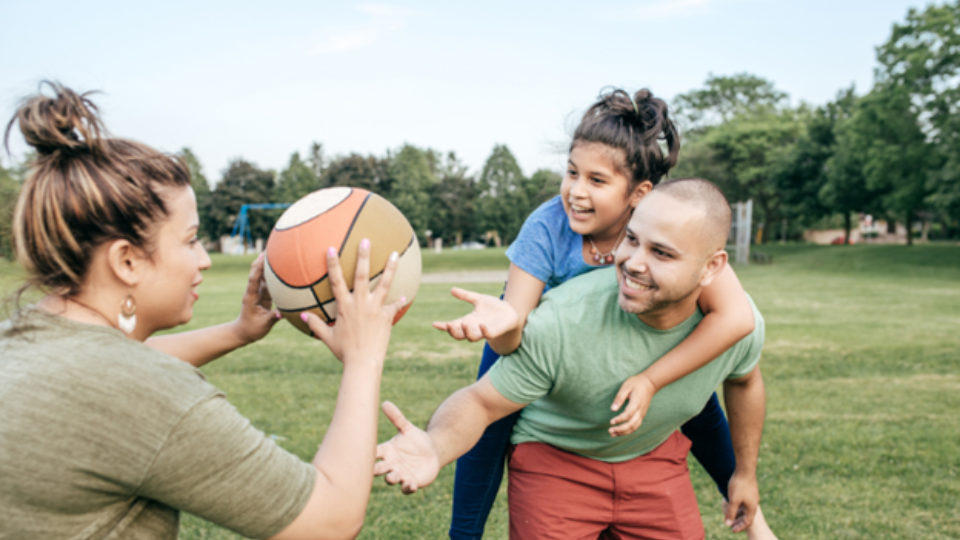Diabetes and the Holidays

The holiday season has arrived! Most of us love to gather with friends and family to celebrate during the holidays. Food is often at the center or our celebrations and gatherings. This can be enjoyable for everyone but can be challenging for people living with diabetes. Here are some research-based tips and tricks to relieve stress around food and help you enjoy this holiday season.
Let’s start with the friendly reminder that it is okay to enjoy fun foods during the holiday season. One meal or day of eating will not destroy the progress you’ve made to improve your health. Feeling stress, guilt, and shame because you overindulged in favorite foods is not healthy and could negatively affect blood glucose levels.
Here are four tips that will help you balance your blood glucose levels while enjoying the holidays. These tips will help you focus on making decisions that can help you feel confident in your food decisions this holiday season.
- Research has shown that exercise improves insulin sensitivity and is beneficial for managing diabetes.
- Some of the best ways to spend time as a family is participating in wholesome recreational activities. Plan a physical activity the whole family can join in on, such as a turkey trot/run or walk, game of kickball or frisbee, or a hike.
- Go on a walk in between or after meals. Walking can be a great way to catch up with family while getting some movement in and help the glucose in your blood to regulate more easily.
- Avoid skipping meals to save up carbohydrates or calories for a larger meal. Research has shown that skipping meals, particularly breakfast, can lead to higher blood sugar spikes following meals and poor glucose control overall.
- Focus on balance by including 2-3 food groups at meals and at least 2 food groups for snacks. Eating a balance of food that includes carbohydrates, proteins, fats, and fiber will help blood glucose levels stay even.
- Don’t skip your morning meal. Eat a balanced meal 30 minutes to an hour of waking up to avoid sharp blood sugar spikes later in the day.
- Eat snacks between meals throughout the day to maintain blood glucose levels. If you plan to eat a meal at an odd time of day, eat snacks at normal mealtimes to avoid drops in blood sugar.
- The Diabetes Plate Method, https://diabetes.org/healthy-living/recipes-nutrition/eating-well , is a great framework you can use when filling your plate this holiday season. Before dishing your plate, look at all the foods offered and choose your favorites. Make sure to always have a good protein source and try to fill half your plate with non-starchy vegetables. For high-carbohydrate foods, consider choosing your favorites and omitting or only getting small portions of the others.
- Choose whole fruits and whole grains as much as possible. The fiber in whole foods will help blood glucose levels remain more stable.
- Substitute low-fat, fat-free, low-sugar or sugar-free food options when possible.
- Focus on mindfulness during meal and snack times during holiday celebrations to increase satisfaction with the food you are eating and prevent urges to overeat.
- Be present with your meal. This means to really enjoy what you are eating by slowing down and tasting each bite. Take time to think about how something tastes or feels in your mouth, it will change the eating experience dramatically.
- Check-in halfway through the meal and ask yourself, “how do I feel right now?” What does this food taste like?” Am I enjoying it?” etc. Stop eating if the food doesn’t taste good to you or if you feel satisfied.
- Save leftovers for later. If there are foods you still wanted to eat but became full before you could eat them, wrap them up and save them to eat later during a regular meal or snack time.
References
Sampath Kumar A, Maiya AG, Shastry BA, et al. Exercise and insulin resistance in type 2 diabetes mellitus: A systematic review and meta-analysis. Annals of Physical and Rehabilitation Medicine. 2019;62(2):98-103. doi:10.1016/j.rehab.2018.11.001Kobayashi F, Ogata H, Omi N, et al. Effect of breakfast skipping on diurnal variation of energy metabolism and blood glucose. Obesity Research & Clinical Practice. 2014;8(3):e249-e257. doi:10.1016/j.orcp.2013.01.001
Breakfast Skipping is Positively Associated With Incidence of Type 2 Diabetes Mellitus: Evidence From the Aichi Workers’ Cohort Study. J Epidemiol. 2015;25(5):351-358. doi:10.2188/jea.JE20140109
Ni Y, Ma L, Li J. Effects of mindfulness‐based intervention on glycemic control and psychological outcomes in people with diabetes: A systematic review and meta‐analysis. J Diabetes Investig. 2021;12(6):1092-1103. doi:10.1111/jdi.13439
Authors
Meghan Adair, Box Elder County - Home and Community Intern
April Litchford, RDN, PhD, Extension Assistant Professor


